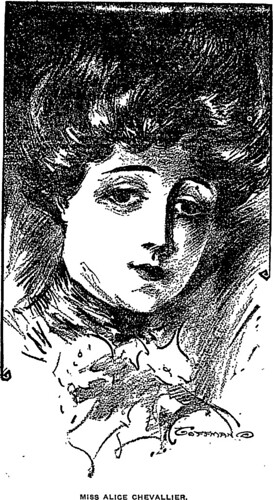May 13, 1907
Highland Park
15-year-old William McCormick visited the police to make a panicked plea for the salvation of his mother Janette, removed yesteday from 228 South Avenue 66 to the lunatics’ ward of the County Hospital. His mother is, William swears, quite sane, and her confinement the result of a family plot to steal her inheritance.
Mrs. McCormick is the primary beneficiary of a million dollar estate based in Denver, although much of the family lives on the west coast, including cousin Arthur Randall, in whose home the McCormicks had been staying.
Although no warrant for the woman’s arrest was ever produced, Superintendant Barber of the County Hospital accepted the word of the deputy sherrifs who brought the shrieking woman into his ward that such a warrant was in the hands of the Sheriff, and he refuses to release his captive until the case is investigated today.
Young McCormick explains, "After the death of my grandmother, mother and I came to the Coast. When our relatives learned that the greater portion of the property was left to mother and me, they began to plot. While we were in San Diego, Mrs. Belle M. Auston, who now lives in Black River Falls, Wis, and is my aunt, tried to kidnap me and was unsuccessful."
After this shock, the pair moved on to stay with a lady cousin in Ocean Park, then moved in with cousin Arthur. "He is the one who is making this trouble for mother. She is sane and has never been troubled with any symptoms of insanity. I believe that my uncles N.M. Phelps and A.D. Merrill of Denver have hired Randall to try to get mother in an asylum, so as to get her fortune! Phelps was left only $5000 by my grandmother’s will and Merrill was not mentioned. I am not very old, but I don’t want to see them harm mother."
The police sargeant told the youngster to contact the District Attorney.

